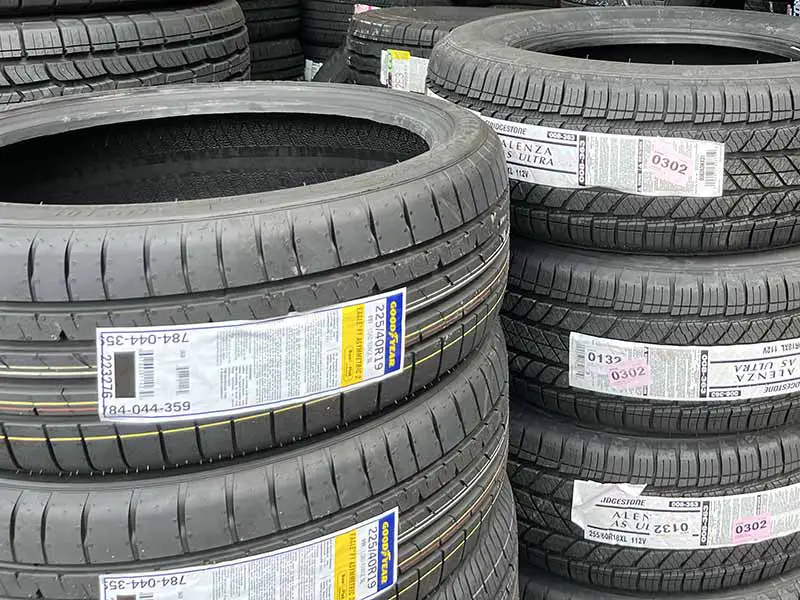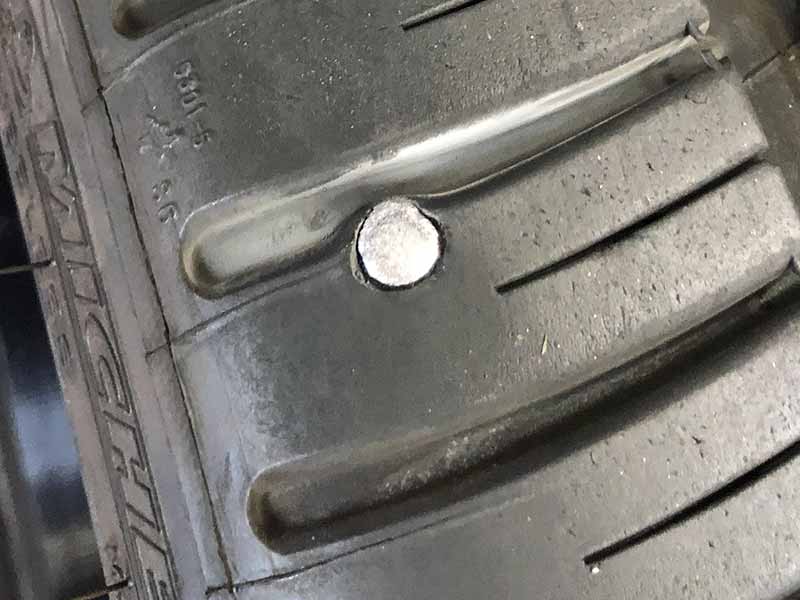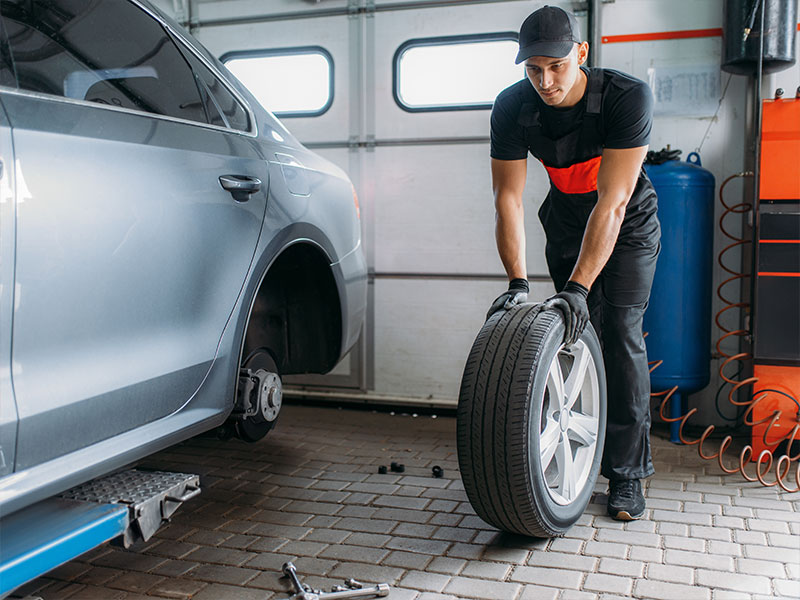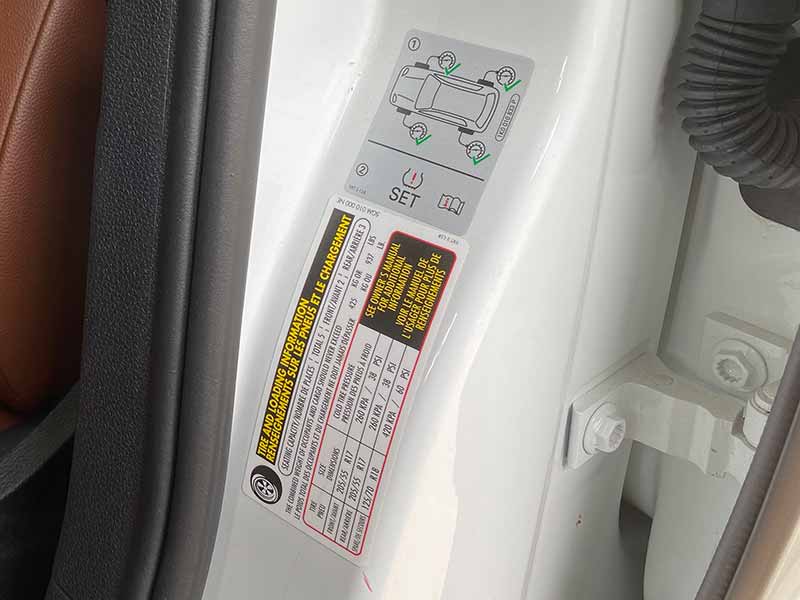Ever looked at the tires of your brand-new car and wondered, “What if they wear out or get damaged? Who’s got my back?” You’re not alone. Many new car owners are puzzled about tire warranties, what they cover, and how they work.
Tire Warranty On New Cars
Tire warranties on new cars are provided by the tire manufacturer, not the vehicle manufacturer. These warranties typically cover issues related to manufacturing defects, tread life, and certain road hazards, among other specifics.
In this article, we’ll debunk common misconceptions about warranties related to tires, delve into the various types of coverage, explore how different brands handle their warranties, and give you a roadmap for navigating a warranty claim on the tires that came with your car or truck.
Let’s take a closer look.

Demystifying Common Misconceptions
The world of tire warranties is, understandably, a maze of information. Before we hit the road on this journey, let’s clear the air on some common misconceptions.
Car Manufacturer vs. Tire Manufacturer: Who’s On The Hook?
When you roll out of the dealership with that shiny new car, those gleaming tires have their own story. Your car’s manufacturer made the vehicle, but those tires? They come from tire companies, specialists in the rubber game.
- Vehicle Manufacturers: They design and assemble your vehicle. From the engine’s roar to the comfort of the seats, they’re the masterminds behind it. But when it comes to tires, they usually just pick the best fit from tire manufacturers.
- Tire Manufacturers: These are the folks dedicated to ensuring your tires grip the road, rain or shine. Brands like Michelin, Goodyear, and Bridgestone are just a few names in this realm. And they are the ones providing the warranty for those tires.
Optional Road Hazard Insurance: A Dealership Add-On
When you’re finalizing the deal for your new car, the dealer might talk about additional coverages, including road hazard insurance. This is NOT the same as a tire warranty.
- Tire Warranty: Provided by the tire manufacturer, this covers specific tire defects and wear conditions for a predetermined period.
- Road Hazard Warranty: Offered as an optional purchase by some dealerships, this covers damage from unexpected road situations, like hitting a pothole. Think of it as a little extra cushion for those unforeseen tire mishaps.

Basics of Tire Warranties
Navigating the world of tires can feel like balancing on a tightrope. But with a little knowledge under your belt, you’ll find yourself cruising confidently. Let’s lay down the foundation of tire warranties.
Who Provides Them
Your tires aren’t just an afterthought of the car production process; they’re the brainchild of experts in the field of tire manufacturing. Brands like Michelin, Goodyear, Bridgestone, and many others specialize in producing these essential rubber wonders.
- Their Role: Apart from making the tires, they provide a basic workmanship and materials warranty. So, when you have a tire issue related to the warranty, it’s these tire manufacturers you’ll be speaking to, not the car dealership.
What’s Typically Covered
A warranty might sound like a blanket promise, but there are specific details in what’s covered.
- Workmanship and Materials: If your tire is flawed because of how it was made or the materials used, it’s generally covered.
- Tread Life: Some manufacturers promise your tires will last a certain number of miles. If they wear out sooner, you might be in for a pro-rated refund or replacement.
- Uniformity: Got a tire that’s a bit wobbly or causes a vibration when driving? That’s a uniformity issue, and it’s often covered for the first few thousand miles.

Tire Manufacturers Warranties Vs. Road Hazard Warranties
When it comes to protecting your tires, there are two main players in the game: the tire manufacturer warranty and road hazard warranty. While they might sound like they’re doing the same job, they’ve got distinct roles. Let’s break down each and see how they stack up.
Tire Manufacturer Warranties
Straight from the creators of your tires, these warranties cover issues that arise from the tire itself:
- What’s Covered:
- Manufacturing Defects: Think of these as birthmarks; they’ve been there since the tire was made.
- Tread Life: If your tire’s tread wears out before its time, you might have a claim (provided you’ve been maintaining them right).
- Materials and Workmanship: Issues like air bubbles in the tire or separations in the tread that aren’t caused by external factors.
- What’s Often Not Covered:
- Accidents, punctures, or damage from external objects.
- Issues arising from improper maintenance.
- Tires that have been repaired or re-treaded.
Road Hazard Warranties
This is like a protective shield against the random dangers of the road. It’s an optional extra layer you can add for more peace of mind:
- What’s Covered:
- Unexpected Road Hazards: Those pesky potholes, sharp objects, or other road debris that can cause sudden damage to your tire.
- Punctures and Cuts: If your tire gets a nasty cut or is punctured by something on the road, this insurance might step in.
- What’s Often Not Covered:
- Normal wear and tear.
- Issues already covered by the tire manufacturer’s warranty (like manufacturing defects).
- Damage from accidents, vandalism, or natural disasters.
The Main Differences
- Origin: Tire warranties come from the tire manufacturer and are usually included with your tire purchase. Road hazard insurance, on the other hand, is an added protection you can purchase from tire retailers or sometimes through your car dealership.
- Coverage Focus: While tire warranties mostly cover defects or issues originating from the tire’s production, road hazard insurance is all about protecting you from unexpected external dangers.
- Duration: Tire warranties often last as long as the stated tread life or a set number of years. Road hazard insurance might be for a shorter duration, like a couple of years, depending on the policy.

Requirements To Maintain The Warranty On Your Tires
There are specific requirements you need to meet to keep the warranty on your new tires valid. Let’s explore what you’ve got to do to ensure that warranty has your back.
Regular Maintenance
Tires, like any part of your vehicle, need some TLC to keep performing at their best.
- Tire Rotations: This is all about ensuring even wear. Regular rotations—usually every 6,000 to 8,000 miles—helps distribute wear evenly across all tires.
- Balancing: Over time, tires might lose their balance. Regular checks ensure they wear evenly and your ride remains smooth.
- Alignments: Misaligned tires can lead to uneven wear. If your car is pulling to one side, it might be time for an alignment check.
Proper Tire Inflation
It’s not just about fuel efficiency; proper inflation is crucial for even tire wear.
- Check Monthly: A simple monthly check with a tire pressure gauge can save you from premature wear and keep that warranty intact.
- Mind the Weather: Temperature changes affect tire pressure. In colder months, ensure they’re not under-inflated.

Navigating a Warranty Claim
Think of a warranty claim like a recipe. There are steps to follow, and you want to make sure you’ve got all the ingredients ready. Let’s break it down into bite-sized chunks.
Before You Even Start: Documentation
Always, always keep your records. Think of them as your golden ticket:
- Purchase Receipt: Proof of when and where you bought the tire. This sets the clock for your warranty.
- Maintenance Records: Some warranties require regular maintenance, like tire rotations, for the warranty to stay valid. Your maintenance records are your proof.
Recognizing a Valid Claim
Not all tire problems are under warranty. Here’s a quick checklist:
- Manufacturing Defects: If the tire has issues right off the bat.
- Premature Wear: If your tire’s tread wears out faster than it should (given you’ve been maintaining them right).
- Performance Issues: Things like wobbly rides, provided they’re due to the tire and not, say, an alignment issue with your car.
Steps to Make a Claim
It’s a bit like going through a maze, but with a map:
- Dealer Visit: Start where you bought the tires. They can guide you on whether the issue might be warranty-related.
- Contact the Manufacturer: If the dealer isn’t helpful, reach out to the tire manufacturer directly. Their customer service should guide you.
- Inspection: The manufacturer might ask for an inspection. This is where they check if the problem is genuinely due to a defect or wear issue covered by the warranty.
- Documentation: Submit all the required documentation. Remember that golden ticket we talked about?
Possible Outcomes
Your claim can go a few ways:
- Full Replacement: They might replace the tire completely. Score!
- Pro-rated Replacement: If the tire had some life but not its full lifespan, you might get a partial credit toward a new tire.
- Denied: If they determine the problem wasn’t due to a defect or a covered issue, you might be out of luck.
Tips and Tricks
A few nuggets of wisdom:
- Stay Calm and Polite: Like with any customer service, a bit of kindness can go a long way.
- Be Persistent: If you believe your claim is genuine, don’t be afraid to push a bit. Just remember the first tip!
- Know Your Warranty: Each brand might have nuances in their warranty. Being informed can help your case.
Resources
Below are some links you may find helpful when learning about tires
- Are you covered? 7 things you may not know about new car warranties – USA Today
- How do tire warranties work? – Autotrader.com
Final Thoughts
Purchasing a new vehicle often comes with a whirlwind of emotions and a list of questions, with tire warranties being one of those gray areas for many. Here’s what we’ve uncovered:
- Tire manufacturers, not vehicle brands, are your go-to for warranty coverage on your tires.
- Types of coverage vary, but they typically encompass manufacturing defects, tread life, and certain road hazards.
- Different brands have their nuances when it comes to warranties, so it’s essential to familiarize yourself with those specifics.
- Staying informed and keeping your records handy is your best bet when navigating the often-confusing path of a tire warranty claim.
In a nutshell, understanding your tire warranty is all about doing a bit of homework and being proactive. So the next time you glance at those shiny new tires on your vehicle, you can feel confident knowing exactly where you stand in the world of tire warranties.
Good luck and happy motoring.





